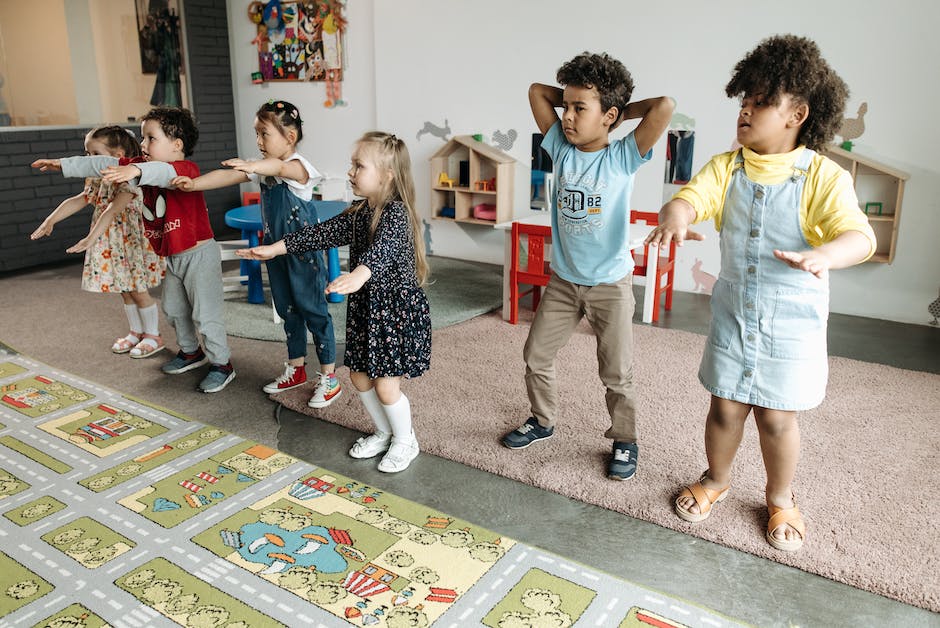Table of Contents
Learning through Fun: The Impact of Educational Games – Where Education Meets Entertainment
Introduction
Introduction:
Educational games have gained significant popularity in recent years as a means of engaging students in learning activities. Learning through fun has become a widely recognized approach to education, aiming to make the learning process enjoyable and interactive. This approach utilizes educational games to enhance students’ understanding and retention of knowledge in various subjects. The impact of educational games on learning outcomes has been extensively studied, with research consistently highlighting their positive effects on student engagement, motivation, and academic performance. This article explores the impact of educational games on learning, emphasizing the benefits they offer in terms of knowledge acquisition, skill development, and overall educational experience.
The Benefits of Incorporating Educational Games in the Classroom

Educational games have become increasingly popular in classrooms around the world. These games offer a unique and engaging way for students to learn and reinforce important concepts. By incorporating educational games into the classroom, teachers can create a fun and interactive learning environment that promotes active participation and deep understanding.
One of the key benefits of using educational games in the classroom is that they can make learning more enjoyable for students. Traditional teaching methods often rely on lectures and textbooks, which can be dry and boring for many students. However, when students are able to learn through games, they are more likely to be motivated and engaged in the learning process. This increased engagement can lead to better retention of information and a deeper understanding of the material.
In addition to making learning more enjoyable, educational games also provide students with the opportunity to develop important skills. Many educational games are designed to promote critical thinking, problem-solving, and decision-making skills. These games often require students to think strategically and make informed choices in order to succeed. By playing these games, students can develop and strengthen these skills in a fun and interactive way.
Furthermore, educational games can also help to improve students’ collaboration and communication skills. Many educational games are designed to be played in groups, which encourages students to work together and communicate effectively. Through these collaborative experiences, students can learn how to listen to others, share ideas, and work towards a common goal. These skills are not only important for academic success but also for success in the real world.
Another benefit of incorporating educational games in the classroom is that they can help to personalize the learning experience for students. Educational games often offer different levels of difficulty or allow students to progress at their own pace. This individualized approach to learning can help to meet the diverse needs and abilities of students in the classroom. By allowing students to learn at their own pace, educational games can help to build confidence and promote a positive attitude towards learning.
Moreover, educational games can also provide teachers with valuable insights into students’ progress and understanding. Many educational games come with built-in assessment tools that allow teachers to track students’ performance and identify areas where additional support may be needed. This data can help teachers to tailor their instruction and provide targeted interventions to support student learning. By using educational games as a formative assessment tool, teachers can gain a deeper understanding of their students’ strengths and weaknesses.
In conclusion, incorporating educational games in the classroom offers numerous benefits for both students and teachers. These games make learning more enjoyable, promote the development of important skills, improve collaboration and communication, personalize the learning experience, and provide valuable insights for teachers. By harnessing the power of educational games, educators can create a dynamic and engaging learning environment that fosters student success.
How Educational Games Enhance Learning and Retention
Educational games have become increasingly popular in recent years as a way to engage students and enhance their learning experience. These games offer a unique approach to education by combining fun and interactive elements with educational content. Research has shown that educational games can have a significant impact on learning and retention, making them a valuable tool for educators.
One of the key ways in which educational games enhance learning is by promoting active engagement. Unlike traditional teaching methods, where students passively receive information, educational games require active participation. This active engagement helps to stimulate the brain and improve cognitive skills. When students are actively involved in the learning process, they are more likely to retain information and develop a deeper understanding of the subject matter.
Furthermore, educational games provide immediate feedback, which is crucial for effective learning. In a traditional classroom setting, students often have to wait for their work to be graded before receiving feedback. This delay can hinder the learning process and make it difficult for students to identify and correct their mistakes. However, educational games provide instant feedback, allowing students to learn from their errors in real-time. This immediate feedback helps to reinforce learning and encourages students to continue practicing until they master the material.
Another way in which educational games enhance learning is by promoting problem-solving and critical thinking skills. Many educational games are designed to present students with challenging problems or puzzles that require them to think critically and come up with creative solutions. By engaging in these problem-solving activities, students develop important skills such as logical reasoning, analytical thinking, and decision-making. These skills are not only valuable in the classroom but also in real-life situations, where the ability to think critically and solve problems is essential.
Moreover, educational games can also improve motivation and engagement. Traditional teaching methods often struggle to capture and maintain students’ attention, leading to disengagement and a lack of motivation. However, educational games are designed to be engaging and enjoyable, making learning a fun and exciting experience. When students are motivated and engaged, they are more likely to invest time and effort into their learning, leading to better outcomes.
Additionally, educational games can cater to different learning styles and preferences. Every student has a unique learning style, and traditional teaching methods may not always accommodate these individual differences. However, educational games can be customized to suit different learning styles, allowing students to learn in a way that best suits them. Whether a student is a visual learner, auditory learner, or kinesthetic learner, educational games can provide a tailored learning experience that caters to their specific needs.
In conclusion, educational games have a significant impact on learning and retention. By promoting active engagement, providing immediate feedback, fostering problem-solving skills, improving motivation and engagement, and catering to different learning styles, educational games offer a unique and effective approach to education. As technology continues to advance, the potential for educational games to revolutionize the way we learn and teach is immense. Educators should embrace this innovative tool and harness its power to enhance the learning experience for students.
The Role of Gamification in Education: Making Learning Fun
Learning through Fun: The Impact of Educational Games
In recent years, there has been a growing recognition of the importance of making learning fun for students. Traditional methods of education often rely on rote memorization and passive learning, which can lead to disengagement and a lack of motivation. However, the integration of gamification in education has emerged as a promising solution to this problem. By incorporating elements of games into the learning process, educational games have the potential to make learning more enjoyable and effective.
One of the key benefits of educational games is their ability to engage students in active learning. Unlike traditional methods, which often require students to passively absorb information, educational games encourage students to actively participate in the learning process. Through interactive gameplay, students are able to explore concepts, solve problems, and make decisions, all while having fun. This active engagement not only enhances students’ understanding of the subject matter but also promotes critical thinking and problem-solving skills.
Furthermore, educational games have been found to increase students’ motivation and interest in learning. By incorporating elements of competition, rewards, and achievement, these games tap into students’ natural desire for challenge and accomplishment. As students progress through levels, earn points, and unlock new content, they are motivated to continue learning and improving. This intrinsic motivation not only leads to a deeper understanding of the material but also fosters a love for learning that extends beyond the classroom.
Moreover, educational games have the potential to cater to individual learning styles and preferences. Traditional classroom settings often rely on a one-size-fits-all approach, which may not suit the diverse needs of students. However, educational games can be designed to accommodate different learning styles, allowing students to learn at their own pace and in a way that best suits them. Whether through visual, auditory, or kinesthetic elements, these games provide a personalized learning experience that can enhance comprehension and retention.
Additionally, educational games have been shown to improve students’ collaboration and social skills. Many educational games are designed to be played in groups or teams, encouraging students to work together towards a common goal. Through cooperative gameplay, students learn to communicate effectively, solve problems collectively, and respect the ideas and opinions of others. These collaborative skills are not only essential for academic success but also for success in the real world, where teamwork and cooperation are highly valued.
Furthermore, educational games have the potential to bridge the gap between formal and informal learning. While traditional education often takes place within the confines of a classroom, educational games can be accessed anytime and anywhere. This flexibility allows students to continue learning outside of school hours, turning everyday activities into opportunities for learning. Whether through mobile apps, online platforms, or virtual reality experiences, educational games provide a seamless integration of learning into students’ daily lives.
In conclusion, the integration of gamification in education has the potential to revolutionize the way we learn. By making learning fun, educational games engage students in active learning, increase motivation and interest, cater to individual learning styles, improve collaboration and social skills, and bridge the gap between formal and informal learning. As technology continues to advance, the possibilities for educational games are endless. With the right design and implementation, educational games have the power to transform education and empower students to become lifelong learners.
Case Studies: Successful Implementation of Educational Games in Schools
Case Studies: Successful Implementation of Educational Games in Schools
Educational games have gained significant popularity in recent years as a tool for enhancing learning experiences in schools. These games provide a unique and engaging way for students to acquire knowledge and develop essential skills. In this section, we will explore some case studies that highlight the successful implementation of educational games in schools and the positive impact they have had on student learning outcomes.
One notable case study comes from a primary school in California, where teachers integrated a math-based educational game into their curriculum. The game was designed to help students practice and reinforce their understanding of basic mathematical concepts. The results were remarkable, with students showing a significant improvement in their math skills. Not only did the game make learning more enjoyable for the students, but it also allowed teachers to track their progress and identify areas where additional support was needed.
Another case study took place in a high school in New York, where an educational game was used to teach history. The game simulated historical events and allowed students to make decisions that would impact the outcome. This interactive approach to learning history not only made the subject more engaging but also encouraged critical thinking and problem-solving skills. Students were able to connect with the material on a deeper level and develop a better understanding of the complexities of historical events.
In a different case study, a middle school in Texas implemented an educational game to teach science concepts. The game incorporated virtual experiments and simulations, allowing students to explore scientific principles in a hands-on manner. The game provided immediate feedback and allowed students to repeat experiments until they achieved the desired results. As a result, students developed a stronger grasp of scientific concepts and were able to apply their knowledge to real-world situations.
These case studies demonstrate the effectiveness of educational games in enhancing student learning outcomes. By incorporating games into the curriculum, teachers can create a more interactive and engaging learning environment. Students are motivated to actively participate in their education, as they see learning as a fun and enjoyable experience.
Furthermore, educational games provide opportunities for personalized learning. Students can progress at their own pace, and the games can adapt to their individual needs and abilities. This personalized approach ensures that each student receives the support and challenges they require to reach their full potential.
Moreover, educational games promote collaboration and teamwork among students. Many games are designed to be played in groups, encouraging students to work together to solve problems and achieve common goals. This collaborative aspect not only enhances social skills but also fosters a sense of community and belonging within the classroom.
It is important to note that the successful implementation of educational games requires careful planning and support from educators. Teachers must align the games with the curriculum and ensure that they address specific learning objectives. Additionally, ongoing assessment and feedback are crucial to monitor student progress and identify areas for improvement.
In conclusion, the case studies presented in this section highlight the positive impact of educational games on student learning outcomes. These games provide an engaging and interactive way for students to acquire knowledge and develop essential skills. By integrating games into the curriculum, teachers can create a more personalized and collaborative learning environment. However, it is essential for educators to carefully plan and support the implementation of educational games to ensure their effectiveness. With the right approach, educational games have the potential to revolutionize the way we educate our students and prepare them for the challenges of the future.
Q&A
1. What is learning through fun?
Learning through fun refers to the use of educational games and activities that engage learners in a playful and enjoyable manner while promoting the acquisition of knowledge and skills.
2. How do educational games impact learning?
Educational games can enhance learning by increasing motivation and engagement, promoting active participation, and providing opportunities for hands-on practice and problem-solving. They can also improve retention and transfer of knowledge.
3. What are the benefits of learning through fun?
Learning through fun can foster a positive attitude towards learning, enhance creativity and critical thinking skills, improve collaboration and communication abilities, and increase self-confidence and self-esteem.
4. Are there any limitations to learning through fun?
While learning through fun has numerous benefits, it is important to ensure that educational games are well-designed and aligned with learning objectives. Additionally, some subjects or skills may be more challenging to teach through games, requiring a balanced approach with other instructional methods.
Conclusion
In conclusion, educational games have a significant impact on learning through fun. These games provide an engaging and interactive learning experience that promotes active participation and knowledge retention. They offer a variety of benefits, including improved problem-solving skills, critical thinking abilities, and increased motivation to learn. Additionally, educational games can cater to different learning styles and adapt to individual needs, making them an effective tool for personalized learning. Overall, incorporating educational games into the learning process can enhance educational outcomes and make learning a more enjoyable and effective experience.





Recent Comments